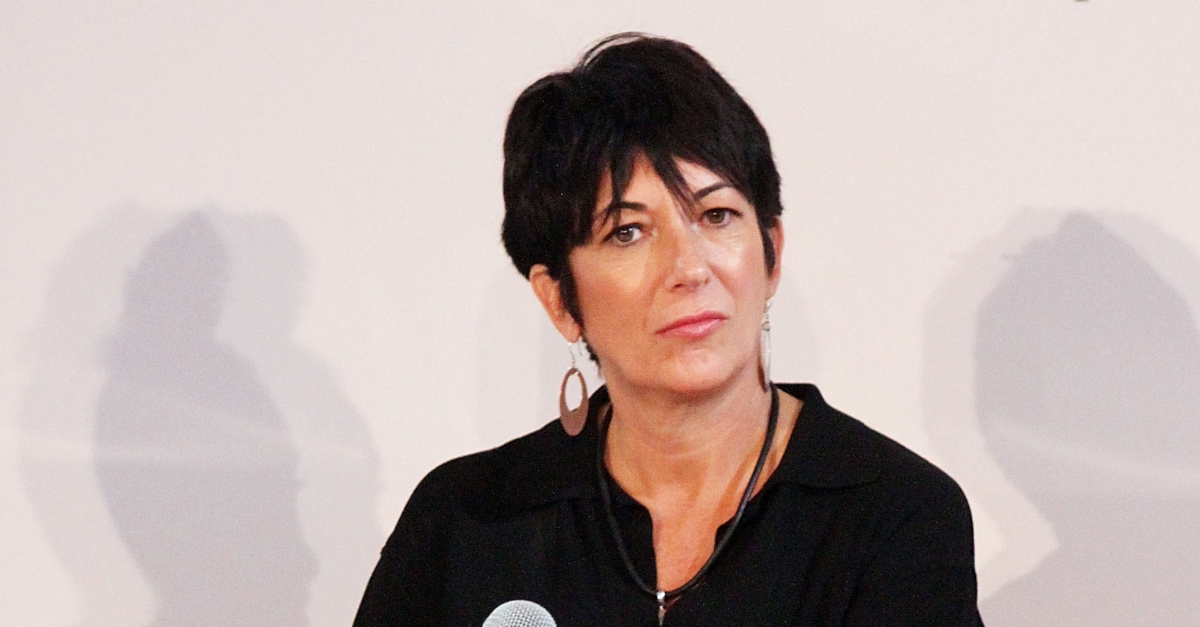
Federal prosecutors in the Southern District of New York (SDNY) on Monday, one day before a scheduled bail hearing and arraignment, made their case for detaining Jeffrey Epstein’s accused co-conspirator Ghislaine Maxwell ahead of trial.
The SDNY said that, without even considering the seriousness of the charges that Maxwell enticed minors to travel only to be abused sexually by Epstein, there are “glaring red flags” that should lead the judge to deny bail:
Among other concerns: (1) she is a citizen of a country that does not extradite its own citizens; (2) she appears to have access to considerable wealth domestically and abroad; (3) her finances are completely opaque, as her memorandum pointedly declines to provide the Court with information about her financial resources; and (4) she appears to be skilled at living in hiding. These are glaring red flags, even before the Court considers the gravity of the charges in this case and the serious penalties the defendant faces if convicted at trial.
Prosecutors worry that Maxwell, who they said played an “essential role in sexual exploitation that caused deep and lasting harm to vulnerable victims,” will flee and never be brought to justice if granted bail.
“At the heart of this case are brave women who are victims of serious crimes that demand justice. The defendant’s motion wholly fails to appreciate the driving force behind this case: the defendant’s victims were sexually abused as minors as a direct result of Ghislaine Maxwell’s actions, and they have carried the trauma from these events for their entire adult lives. They deserve to see her brought to justice at a trial,” prosecutors said. “There will be no trial for the victims if the defendant is afforded the opportunity to flee the jurisdiction, and there is every reason to think that is exactly what she will do if she is released.”
Maxwell’s defense lawyers came up with at least eight reasons last Friday as to why their client should be bailed out ahead of trial. The coronavirus threat was among those reasons, but so was this: Ghislaine Maxwell is not Jeffrey Epstein. Not exactly a ringing endorsement, but an argument nonetheless.
The defense lawyers also said that Maxwell’s decision to remain in the U.S. following Epstein’s Aug. 2019 death in jail indicated that she would not flee. Prosecutors did not buy this, noting that the stakes are much higher now.
“The defendant now faces the reality of serious charges, supported by significant evidence, and the real prospect of spending many years in prison,” the motion said. “The return of the indictment fundamentally alters the defendant’s incentives and heightens the incentive to flee far beyond the theoretical possibility of a charge during an investigation (one the defendant may have wrongly believed would or could not reach her).”
Prosecutors argued that up until the last moment before her arrest, Maxwell’s instinct was to run and hide. There was also a bizarre detail about a cell phone wrapped in tin foil, seemingly as part of a half-baked attempt to “evade detection”:
More troubling still, the defendant’s conduct at the time of her arrest further underscores the risk of flight she poses. When FBI agents arrived at the defendant’s remote property in New Hampshire on the morning of July 2, 2020, they discovered the property was barred by a locked gate. After breaching the gate, the agents observed an individual who was later determined to be a private security guard. As the agents approached the front door to the main house, they announced themselves as FBI agents and directed the defendant to open the door. Through a window, the agents saw the defendant ignore the direction to open the door and, instead, try to flee to another room in the house, quickly shutting a door behind her. Agents were ultimately forced to breach the door in order to enter the house to arrest the defendant, who was found in an interior room in the house. Moreover, as the agents conducted a security sweep of the house, they also noticed a cell phone wrapped in tin foil on top of a desk, a seemingly misguided effort to evade detection, not by the press or public, which of course would have no ability to trace her phone or intercept her communications, but by law enforcement.
Prosecutors further said that a security guard at Maxwell’s New Hampshire residence, who was there when the FBI breached the gate, told agents that Maxwell’s brother hired former British military members to guard the property. According to the security guard, Maxwell never left the remote New Hampshire property “during his time working there”:
Following the defendant’s arrest, the FBI spoke with the security guard, who informed the agents that the defendant’s brother had hired a security company staffed with former members of the British military to guard the defendant at the New Hampshire property, in rotations. The defendant provided one of the guards with a credit card in the same name as the LLC that had purchased the New Hampshire property in cash. The guard informed the FBI that the defendant had not left the property during his time working there, and that instead, the guard was sent to make purchases for the property using the credit card. As these facts make plain, there should be no question that the defendant is skilled at living in hiding.
Maxwell currently faces two counts of Conspiracy to Entice Minors to Travel to Engage in Illegal Sex Acts; Conspiracy to Transport Minors with Intent to Engage in Criminal Sexual Activity; Transportation of a Minor with Intent to Engage in Criminal Sexual Activity; and two counts of Perjury.
[Image via Laura Cavanaugh/Getty Images]